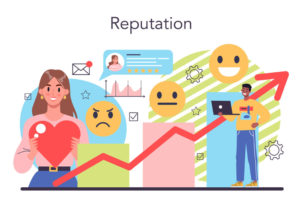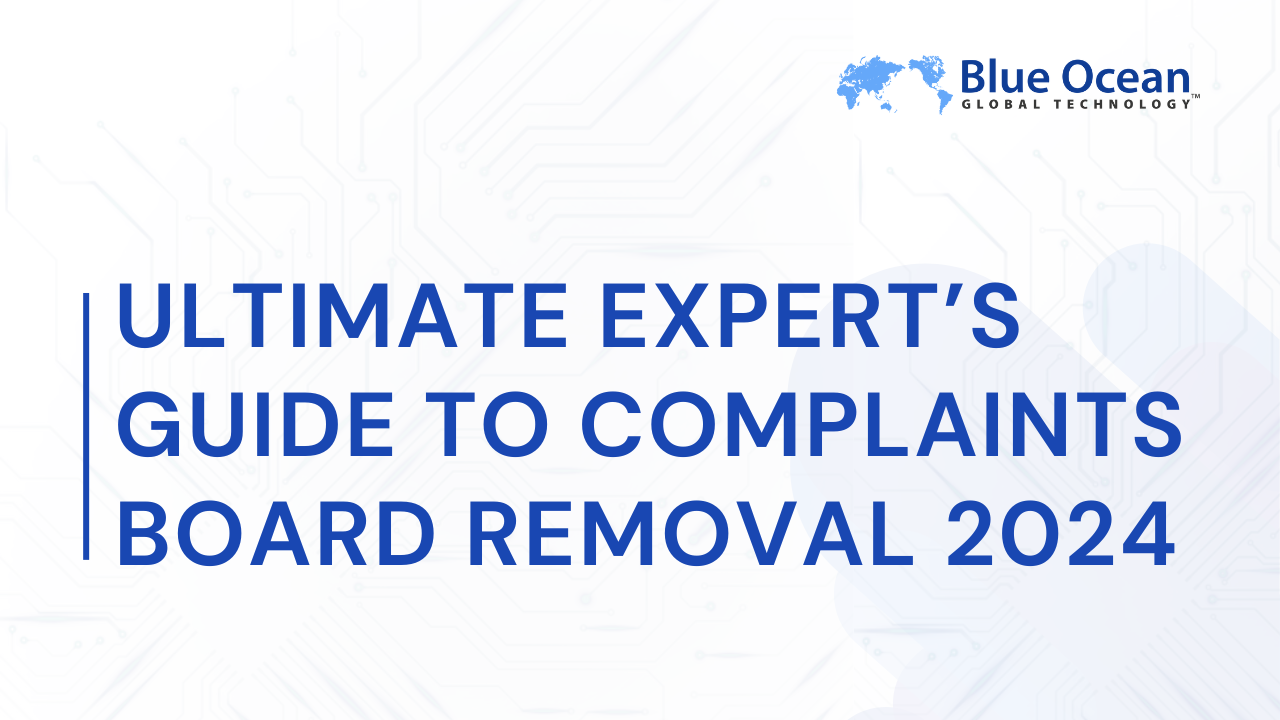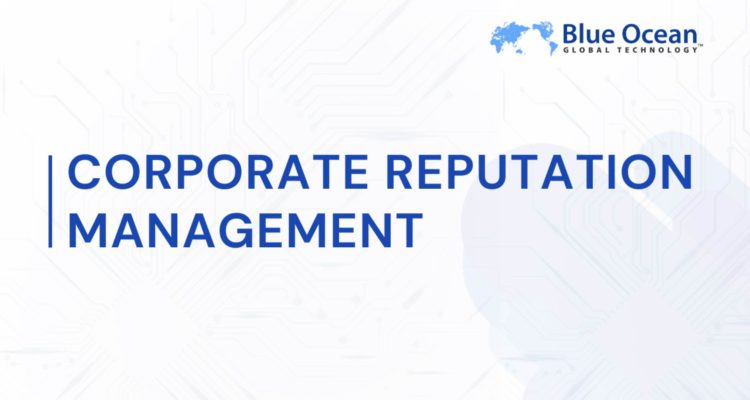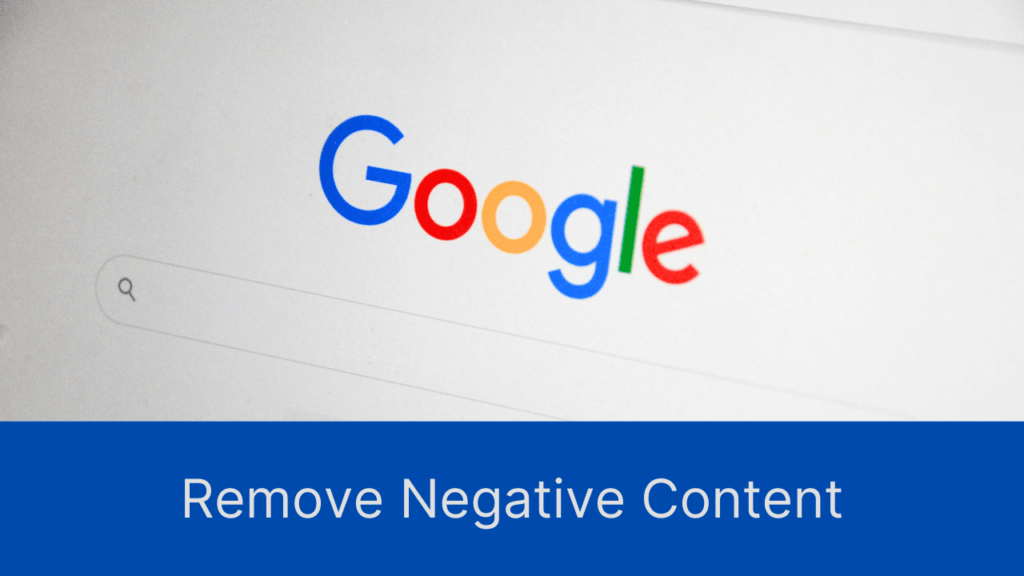Introduction to Complaints Board Review
The latest report by Power Review states that 50 % of people write reviews today compared to the past. This is due to growing awareness among customers and easy access to a variety of review platforms. For example, Trustpilot, Yelp, and Complaintboard.com. While these review forums allow customers to share concerns, they have no restrictions on what customers say and how. Consequently, these platforms end up acting as a double-edged sword for businesses.
For example, customers can easily write false reviews about a business simply to express frustration, even if it’s their fault. Neglecting the fact that a single irresponsible act on their part can put the entire business’s reputation at stake. However, there are many steps that the business can take to recover its brand reputation. For instance, removing or hiding negative reviews—don’t worry if you don’t know how.
Keep reading to explore complaint board removal strategies. However, before exploring different complaint board removal options, let’s define the term complaint board and its types. And why businesses should care about negative reviews on such platforms.
What Is the Complaints Board?
The complaint boards are review forums that allow consumers to post complaints against businesses. Users can leave reviews, and ratings, and write detailed explanations of the situation. Its primary purpose is to facilitate customers by openly sharing their negative experiences and disagreements with the companies.
Therefore, customers primarily take advantage of these platforms to hold businesses accountable for their inappropriate or fraudulent behavior. Because it’s no longer a secret that sometimes even big corporations ignore customer concerns when they are raised privately. However, once they are brought online or become public, companies feel compelled to respond to protect their brand reputation.

Source : Freepik
What are the types of complaints boards and what is the difference between review platforms and the complaints boards?
Complaints boards differ from other review platforms in the following ways.
- Forums like the Complaints Board and the Better Business Bureau are general platforms. Users can share complaints, and neutral opinions, or simply rate their experiences on these platforms. Their main distinguishing feature is that they claim to serve as mediators between customers and businesses.
- Spaces like Ripoff Report and Pissed Consumer mainly focused on bringing up negative experiences. Unlike, general complaint boards, they aim to expose scams and suspicious businesses, sellers, and companies.
- Yelp and Trustpilot are neutral platforms. Along with allowing users to express negative experiences, they encourage users to talk about positive experiences. This helps potential customers make informed decisions by weighing the pros and cons.
Regardless of the platforms’ nature, settling the dispute on these public forums is difficult. Although these forums claim to exist to help consumers solely, they survive and grow on conflicting content. This brings us to reflect on one of the most important questions that businesses or companies often ask. That is: why is removing complaints from complaint boards important?
Why Removing Complaints From Complaints Board Is Important
As per a recent report by Statista, 66 % of people have internet access. It means that potential customers can easily find negative content about your services or business online. This damages both your business reputation and the way people perceive your brand. For instance, if somebody reads a fake review about your business online, they will instantly form false opinions about it, without ever engaging with it.
What’s more concerning is that negative reviews get more traction and circulate instantly. People share it aggressively without verifying its authenticity. For instance, a survey by Power Reviews revealed that 97 % of people read reviews before making a purchasing decision. Interestingly, the same report found that 85 % actively look for negative reviews prior to buying.
Finally, negative or false information may appear on the top pages of Search Engine Results (SERP). Therefore, if customers search for information about your business on Google, they may instantly come across this misleading content. Hence, may not decide not to work with you.
In short, erasing negative content from the internet is crucial because it impacts your overall brand reputation, sales, and customer loyalty.

Source: Freepik
Strategies for Complaints Board Removal
Now let’s answer the most awaited question: how does the complaints board removal process work? Is it possible to remove the fake or negative complaints boards from these forums?
Let’s explore the options businesses have at their disposal for complaints board removal:
- Read the review carefully. Determine if it is legit -don’t react instantly even if it’s not. Analyze if the review violates the platform’s rules, and take advantage of that.
- Either reach out to the user directly using the private text feature.
- Explain your side of the story using respectful language and tone. Any aggressive act or mistake while communicating would only further damage your business reputation.
- If you do not receive a response from the reviewer, report feature at the top of the review to report it.
- You can also reach out to the complaint support team for assistance in case of fake reviews.
- In case of fake reviews, be vigilant and keep a record of all of your communication with both boards and users.
- In both cases, the process would take time; being patient is important.
What are the options for complaints board removal if the review is true?
Enhance Your Online Reputation Today!
Want to build a strong presence for your business? Our expert team is here to help you manage and improve your online image.
Steps for Handling True Reviews on Complaints Boards
Handling genuine reviews requires extra caution, as one wrong action can worsen the situation. Here’s how you should deal with true reviews on complaints boards:
- Be extra cautious and respond carefully if the review is true.
- Don’t get frustrated about why the user has posted it on a public forum.
- Instead, demonstrate that you genuinely feel sorry for the oversight or mistake. And show a willingness to assist the user in all possible ways.
Here is more on handling such situations:
- Start by acknowledging your mistake and empathizing with the user. Show that you understand their pain and frustration.
- Respond in a way that doesn’t reflect that you are concerned just because your reputation is being jeopardized.
- Explain what next steps are available or you are willing to take to solve their problem. While doing so, politely ask the user to be in touch with you privately for further and better assistance.
Finally, you can use this as an opportunity to exemplify your customer care and set an example for other businesses. However, a preplanned strategy can help you better deal with these crises. Consider having one if you don’t already have a brand reputation crisis management plan.
By now, you must have got an idea that removing the complaints from complaints boards is not an easy task. These platforms do not exist solely to be consumer voices or expose fraudulent businesses. Rather, they partially exist because negativity attracts more attention in the digital sphere. As per statistics, negative reviews are shared around 49% of the time, compared to 38% for positive ones.
This is one of the major reasons that these platforms do not delete the reviews even after the complaints are resolved.
For instance, their policies clearly state that :
- They cannot be held responsible for the user’s opinion
- Reviews or complaints cannot be deleted until and unless they violate their policies e.g using derogatory language or posting inappropriate content
- Reviews cannot be deleted until they have the court orders to do so
Except for these conditions, reviews can only be edited if the reviewer agrees with the business after their complaint has been resolved. Lastly, they can be marked as resolved, to avoid its impact on business rating.
Source: Freepik
Alternate Complaints Board Removal and Mitigation Options
Hire Reputation Management Service Providers
Removing negative content isn’t always easy. In such cases, seeking help from a reputation management service is another option to consider. Reputation management services have years of experience and training in dealing with such crises and also possess legal expertise.
Therefore, they can better understand the hidden facts and intricacies involved in these matters. Their strategic response can not only help resolve the issues promptly but also prevent them from escalating. Secondly, although review platforms claim that reviews can’t be deleted, defamation experts can help find ways to do so. They can assist in taking the desired legal actions. They can also assist in sending the legal court orders required to erase harmful content.
Improving Search Visibility and Suppressing the Negative Results
Reputation management services can help rebuild your reputation using suppression practices. In simple terms, suppression involves burying the negative content by promoting positive content using different channels and means. They use a variety of tools, and practices including, creating new channels and regularly generating quality content. This helps improve your online presence and ensure that positive content dominates search results.
Finally, reputation management services and lawyers can help design a long-term, actionable strategy for handling such crises in the future. Negative reviews are not good, but they don’t mean the end of the story. Taking proactive actions and seeking help from relevant experts can help you rebuild your brand image and authority.
Conclusion
Removing complaints from the Complaints Board is a complex process. However, strategic response and timely response can help mitigate the negative impact in some ways. Follow the complaints board removal steps mentioned above along with seeking legal advice to deal with the situation effectively.
Frequently Asked Questions
1. How to deal with and remove negative reviews?
Begin with carefully reading and analyzing the review. Resist the temptation to respond instantly or attack the reviewer. Empathize with the reviewer, acknowledge your mistake, and promise to resolve his or her problem. Conclude with a commitment to improve and avoid such mistakes in the future.
2. How to remove complaints from complaint boards?
Businesses cannot directly remove complaints from complaint boards. However, you can report the complaint if you find it inappropriate. You can also try contacting the user and request that they edit the review once you address the issue. Consider seeking legal and reputation management services for complicated cases.
3. How to respond on complaint boards or general review forums?
Dealing with reviews on public forums is challenging; however, the most important thing to remember is to remain calm. How you respond to the review can either rebuild your image or damage it further. Even if you know the review doesn’t hold the truth, empathize with the user, and use polite language.
4. Can companies delete the negative reviews themselves?
No, most review platforms do not allow businesses to delete reviews. However, reviews can be deleted if they violate the platform’s policies. Or if there is a court order to do so.
Online Reputation Management is Essential for Every Business.
Invest in your success—contact us today and let our team of experts help you protect and enhance your reputation.













